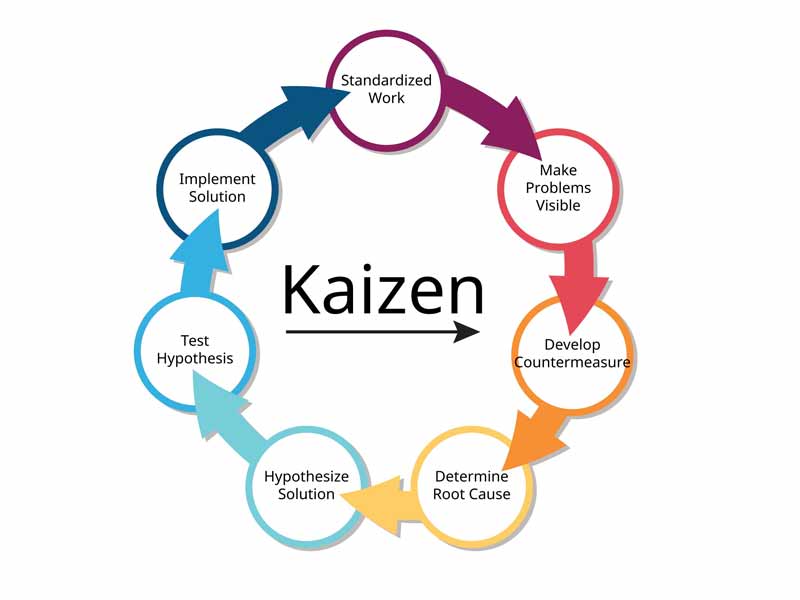Numerous Japanese cultural practices have the potential to dramatically transform our lives.
Despite the fact that these methods originated in Japan, their effectiveness and simplicity make them appealing to people all around the world.
By incorporating these practices into our daily lives, we can build a lifestyle that promotes physical health, mental peace, and happiness.
Shinrin-Yoku

Shinrin-yoku, also known as forest bathing, includes immersion in a forest environment. This ecotherapy method provides benefits such as less stress, improved mood, and a stronger immune system. Spending time in city parks or other green spaces allows you to put this into practice while creating a sense of tranquility and kinship with nature.
Ikigai

Ikigai, which loosely translates as “reason for being,” provides a complete picture of life. It is urged to strike a balance between one’s vocation, purpose, and profession—basically, that which brings joy, satisfies needs, can be paid for, and is needed by the world. As a result, this equilibrium promotes longevity and a higher quality of life. Investigate what you enjoy doing best and what your Ikigai is if you want to live a more purpose-driven existence.
Mottainai

The Mottainai Spirit is taught to Japanese children at a young age to instill a sense of responsibility and conservation.
Because Japanese people have been hearing the word “mottainai” since childhood, they are naturally concerned about wasting resources, such as turning off lights when they are not in use.
However, mottainai is more than just avoiding waste; it is also about appreciating what one has and caring for one’s belongings. Individuals can make a beneficial impact on the environment while contributing to a more sustainable future by practicing mottainai in their daily lives.
Hara Hachi Bu

The Japanese Okinawans adopted the Confucian teaching of Hara Hachi Bu, which instructs adherents to eat until they are 80% full. This technique encourages mindfulness and moderation to decrease overeating and its associated health risks, such as obesity and diabetes. Pay attention to your satiety and hunger indicators to put this into practice. Eat slowly and quit when you are satisfied but not full.
Seaweed rich diet

Seaweed is a significant component of the Japanese diet. It improves flavor and is a superfood rich in important nutrients. Seaweed has a lot of iodine, which helps with thyroid function, as well as calcium, iron, and magnesium. Seaweed can be readily incorporated into your diet by adding it to soups and salads or by snacking on nori sheets.
Also, Read Mindful Eating: Eating habits for a better mind and body
Solid relationships and ties

Social ties are vital in Japan for developing a sense of identity and mental wellness. According to studies, strong social relationships are associated with improved longevity, better mental health, and stress reduction. Participate in family duties, sit with a friend, and participate in community events to strengthen your social bonds.
A cup of green tea

Green tea, a cornerstone of Japanese culture, has numerous health benefits. It lowers cholesterol, reduces inflammation, and improves cognitive function due to the concentration of catechins, an antioxidant. The intricate process of producing green tea teaches patience and focus. Consider introducing green tea into your regular routine as a calming afternoon habit.
Japanese Diet

The traditional Japanese diet’s balanced and nourishing composition is renowned for its health and well-being benefits. This diet is mostly composed of rice, fruits, and vegetables, which are naturally low in calories and fat.
Rice, a versatile nutritional staple, provides the necessary carbohydrates for energy. Scientific evidence backs up these benefits by correlating the Japanese diet to a decreased incidence of obesity and heart disease. Try to include more seafood, rice, and plant-based foods in your meals to mimic this tendency.
Kaizen

Kaizen is a combination of two Japanese terms that mean “good change” or “improvement.” Kaizen is a philosophy that believes that modest, incremental adjustments are more beneficial than massive, abrupt changes. This applies to both personal and professional life.
Kaizen has evolved to represent “continuous improvement” as a result of its link with lean methodology and ideals. Kaizen is the antidote to the defeat and failure we feel after making too ambitious plans or goals, only to relinquish them a few weeks later. While kaizen will not improve your life overnight, it can initiate tremendous change – bit by bit.
Harmony, order, and self-improvement

In Japanese society, harmony, discipline, and self-improvement are key concepts that influence your interpersonal connections and personality. While order provides structure in life, harmony promotes peaceful coexistence. Self-development promotes continuous learning and a growth mentality.
Wabi-Sabi
Wabi-sabi is a sophisticated philosophy that embraces the beauty of imperfection. Taken separately, wabi and sabi are two distinct concepts:
Wabi is about finding beauty in the simplest of things. It asks us to open our hearts and let go of the vanity of materialism to experience spiritual riches.

Sabi is interested in time, how everything develops, ages, and decays, and how it manifests itself in beautiful ways in objects. It implies that beauty can be found beneath the surface of what we see, even in what appears to be shattered.
These two ideas combine to provide an overarching philosophy for approaching life: accept what is, stay in the present moment, and appreciate life’s simple, fleeting stages. It serves as a reminder that everything in life is fleeting, and that imperfection is a natural and necessary element of our surroundings.
Encourages us to find purpose and beauty in the imperfect and incomplete natural world, as well as in our daily lives. It promotes gratitude for what one has.

























